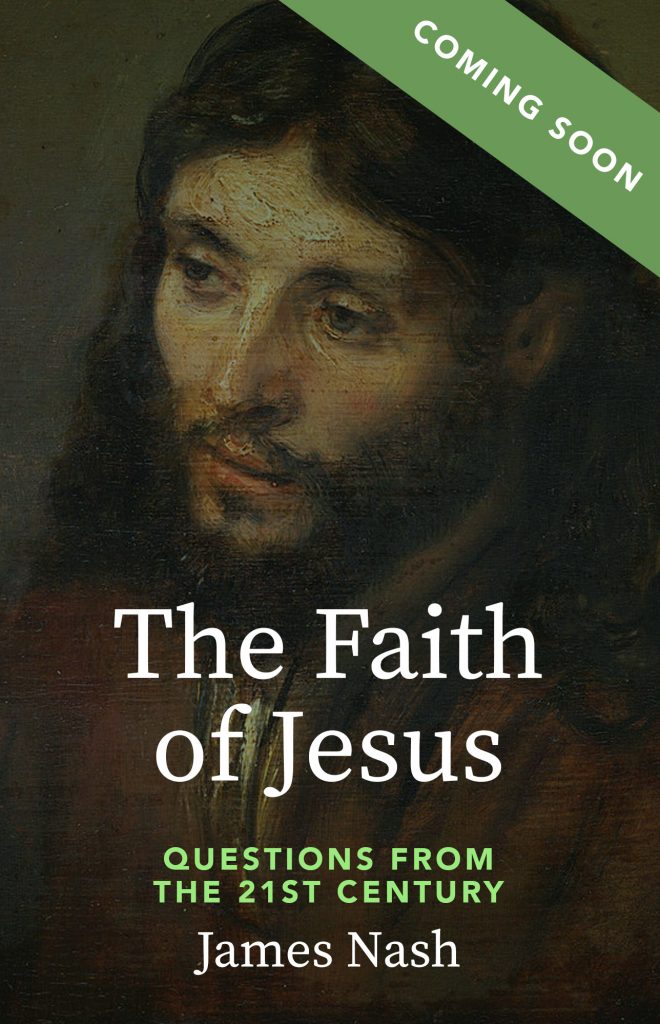Twenty-third Sunday Ordinary Time
Wis 9:13-18b
Philemon 9-10, 12-17
Luke 14:25-33

This part of today’s gospel is usually skipped over in the homilies I have heard (verse 26). But it is one of my favorite gospel passages, especially the part about hating your parents! I think it may have saved my life.
My experience is unique to some extent; but based on my conversations with people of all ages, similar challenges have confronted many others. With that hope, bear with me while I make the case for “hating” your parents.
I recognize that most Christians, when they wrestle with this passage at all, make the weaker case: “What Jesus really means here is that God must come first, before all family ties.” His use of the word “hate,” is an example of “Semitic hyperbole,” and not to be taken literally. I agree that Jesus could have been exaggerating here to make a point. In any case, it is certainly true: if any family member tries to come between us and what God wants us to do, the right choice is clear.
But I want to make the stronger case, that sometimes you may need to hate a family member, especially a parent or two, in order to follow Jesus. How can this be? Did not Jesus command us to love our neighbor, even our enemies? How can he now come and tell us to hate our closest family members? Is this not an obvious contradiction?
The two commands may seem logically contradictory, but emotionally they are not. Love and hate are not so far apart. The opposite of love is not hatred but indifference. But I want to make a distinction between two different forms of hatred. There is the hatred of long-standing bitterness for wrongs the hated person did that caused lasting harm to you or someone you care about. This is dead-end hatred, and I am not going to touch it here. The opposite of this form of hatred is probably forgiveness. The hatred I am talking about could be called “transitional” or perhaps even “transactional.” This is hatred that is going somewhere.
This is the kind of hatred I had for my parents, for a while. I think it saved my life–not to mention my relationship with them.
Parents, or whoever is taking care of us, have a lot of power over their children. When we are young, our life depends upon the grown-ups taking care of us. We need them for food, clothing, shelter and love. As we grow older, we normally become more independent from them, but this process is not automatic. Emotionally, we are still likely to crave their approval.
Sometimes, this can be healthy. But other times, if we put pleasing our parents ahead of everything else or if they are not in touch with what is in our best interest, pleasing our parents may be toxic. In my case, I had both problems: parental approval was my ersatz religion. To make matters worse, my parents thought they knew exactly what I should do with my life even though they did not really understand me.
I graduated from college when I was twenty-two. Until that point, pleasing my parents rarely conflicted with my life path. They wanted me to be a good student and I also wanted to be a good student. Back in the 1970’s when I was in college, we did not concern ourselves much with ‘career planning.’ We focused on doing well in school, having some fun, and figured we would worry about finding a job after we graduated.
As graduation approached, I realized I had no clue what I wanted to do with my life! My parents were ready with the answer: go to law school. After all, my father, grandfather and great-grandfather had all been lawyers. In the same firm. In the same small town. Why should I be any different? Plus, I was the only son; my sister was not eligible to be a lawyer in their eyes. It was up to me to continue the line.
I applied to law school and decided to go, faute de mieux. I reasoned that if it was not for me at least I would know once and for and could get that monkey off my back. It was not for me. I dropped out February 14 of my first year—my first academic failure. My parents were devastated. They could barely bring themselves to speak to me. That hurt. I never regretted leaving law school because I knew I did not want to spend my life as lawyer. But the problem was I had no idea what I did want to do! Just when I needed my parents’ support and understanding what I got was: rejection!
I came to realize that I had constructed a kind of personal religion around never disappointing my parents. As a result, I had lost track of who I was and what I wanted to do with my life. Although I blamed my parents for this at the time, with hindsight I have come to realize this mistake was on me. I spent the next couple years trying to figure things out. I drove a cab, worked in a restaurant, and read a lot of theology and philosophy. I also started going to church and became a Catholic.
It was during this time that I found today’s gospel reading such a lifesaver. I had to “hate” my parents, more accurately the power I had conceded to them, in order to destroy the false idol I had made of their approval. I needed the authority of the Bible, the Word of Jesus, in order to overpower the authority of my parents, who both were church-going Presbyterians. And all through this time they were not giving up without a fight! I wish Talk, Talk had written their song, “It’s My Life,” back then, because it would have done me a lot of good. I discovered it later, and it expresses musically what I’m trying to do with words. Thanks to Jesus, we know there is something sacred about how we decide to live our lives. Maybe that’s his greatest gift to us.
Eventually, with God’s help, I found my way to graduate school in theology and spent the next twenty years teaching, reading and writing. It took some time, and my conversion to Catholicism did not help, but eventually my parents and I fully reconciled when they saw I had found work and made a life for myself that I loved. I do not think any of this would have happened if I had not “hated” them and destroyed the excessive power I had given them.
Your relationship with your parents does not end with their death, of course. In a way, that’s when it really gets going. Mine died decades ago. I think and pray with my parents throughout the day, and now they’re a good influence on me! We have become equals, and now we are friends.
I know my story is unique in many ways, but I don’t think I am alone. I have found many people, of all ages, who are haunted by their parents or childhood traumas. I think slaying the parent-dragon is a task we are meant to do when young. It is so sad to see older people whose lives still seem to be stunted by their long-dead parents! Sometimes, in their despair, they appear to be caught in the dead-end form of hatred.
You could object this is more psychology than theology, but I disagree. Jesus promises to give us “abundant life.” In John 10:10 Jesus says, “I came that they may have life, and have it abundantly.” The promise of eternal life is meant to change how we live right now. The gospels are replete with passages where Jesus puts his family ties aside in order to accomplish his mission of bringing us the kingdom of God, for example Luke 8:19-21. We must be prepared to do the same. Sometimes that means confronting the tiger head-to-head.




Thank you for sharing your personal story of those post-college years of discernment. And thank you for sharing your journey of connection to disconnection back to connection with your parents. It’s inspiring to me.